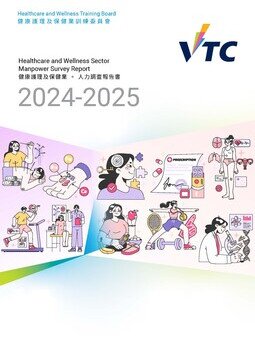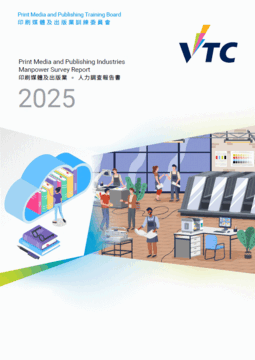Recommendation
Training Needs
- Jewellery -
1st
Gemstones Product Knowledge
2nd
Customers Services and Communication Skills
3rd
Selling Skills
Training Needs
- Timepiece -
1st
Watches Product Knowledge
2nd
Selling Skills
3rd
Customers Services and Communication Skills
Training Needs
- Optical -
1st
Basic Knowledge on Optics and Ophthalmic Care
2nd
Understanding on Emerging Markets
3rd
Customers Services and Communication Skills
1. Cultivate Artistic Literacy Among Young People, Promote Craftsmanship Culture and Vocational and Professional Education and Training (VPET)
- Integrate elements of jewellery, timepiece and eyewear craftsmanship in the curriculum of Visual Arts offered in primary and secondary schools
- Introduce more industry-specific Applied Learning elective courses for senior secondary students so that students could have an earlier exposure to the Jewellery, Timepiece and Optical Industries
- Collaborate with industry stakeholders to host regular exhibitions or allocate dedicated museum spaces for permanent displays
- Enhance VPET promotion at primary and secondary schools by expanding the “Business-School Partnership Programme” (BSPP) and hosting or supporting large-scale VPET promotion events
2. Promote Qualifications Framework (QF) to Recognise Practitioners’ Qualifications and Professionalism
- Encourage greater employer recognition of QF qualifications and improve public acceptance
- Develop vocational qualification pathways for the Jewellery, Timepiece and Manufacturing Technology Industries so that in-service practitioners could have a clear understanding of the required competencies and be able to map out their training paths
1. Provide Flexible Work Arrangements and Improve Employee Benefits
- Offer more flexible work arrangements to attract a broader range of job seekers
- Conduct regular reviews of employees’ remuneration packages to ensure market competitiveness
2. Utilise Government Resources to Explore New Markets and Reduce Dependency on a Single Market
- May apply for the “Dedicated Fund on Branding, Upgrading and Domestic Sales” (BUD Fund) to open up Mainland China and ASEAN markets
3. Leverage on ESG and Undergo Green Transformation
- Develop more eco-friendly, sustainable and recycled-material products
- Upgrade production equipment and refining processes to reduce carbon emissions so as to boost corporate image and competitiveness
4.Develop Multi-Functional Products and Cross-Industry Collaborations
- Create multi-functional products by integrating electronic features to expand market potential
- Diversify the businesses to reach new customer groups, e.g. some eyewear companies expand their scopes to eye care and hearing aid services.
- Partner with fashion brands, celebrities, or cartoon franchises to launch cross-over products
1. Collaborate with Industries to Develop Training Programmes Addressing their Needs
- Make reference to the key training needs identified in the manpower survey and work closely with industry stakeholders to develop tailor-made courses that meet market demands
- Organise programmes that combine traditional craftsmanship with modern technology, incorporate basic production knowledge into design courses, provide ESG training for mid-to-senior management
- Enhance practical elements in pre-employment training by providing more internship opportunities to students
- Design flexible training programmes, such as hybrid (online and in-person) courses, to accommodate the operational needs of the industries
2. Develop a Global Perspective for Students
- Cultivate students’ global perspectives through various learning and exchange programmes that promote international exposure
3. Nurture Digital Marketing Professionals
- Offer comprehensive training in digital marketing, covering areas such as website development, search engine optimisation (SEO), data analytics, content marketing, social media management, video production and advertising strategies.
Utilise Government Resources for Continuous Learning and Career Development
- Leverage government resources to enhance the skills
- Government-subsidised courses and programmes applicable to the Jewellery, Timepiece and Optical Industries include “Vplus Creative Industries” Programme, “Skills Upgrading Courses”, “Recognition of Prior Learning (RPL)” Mechanism and “Design Incubation Programme”.




































